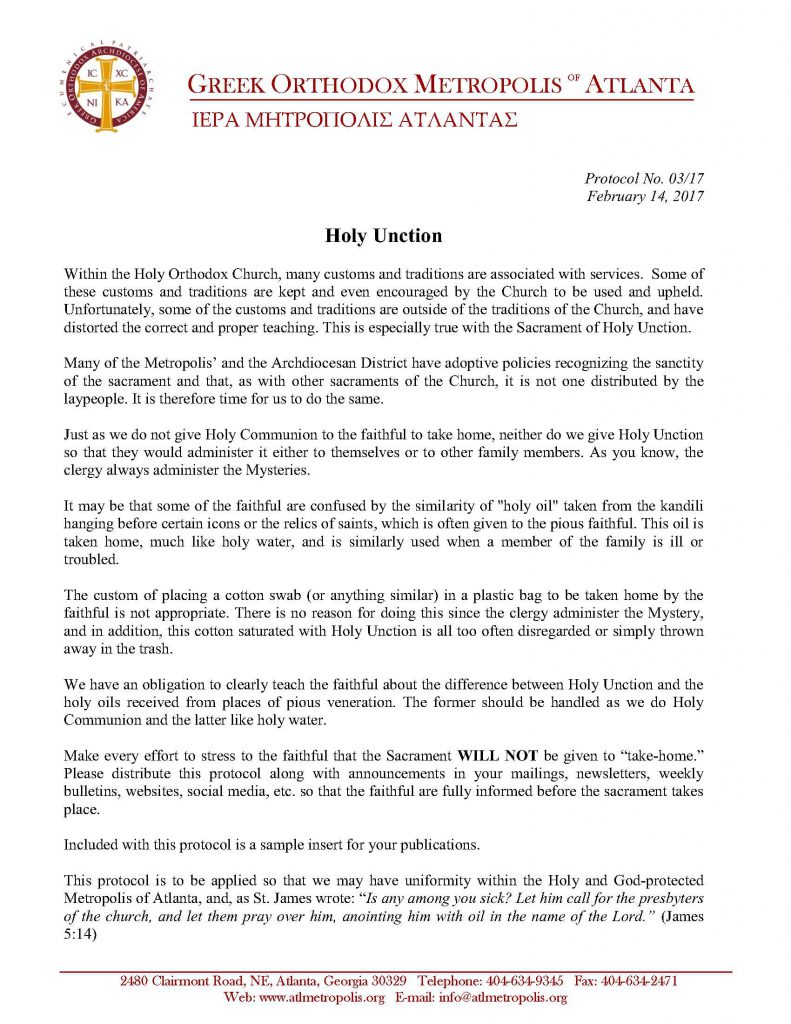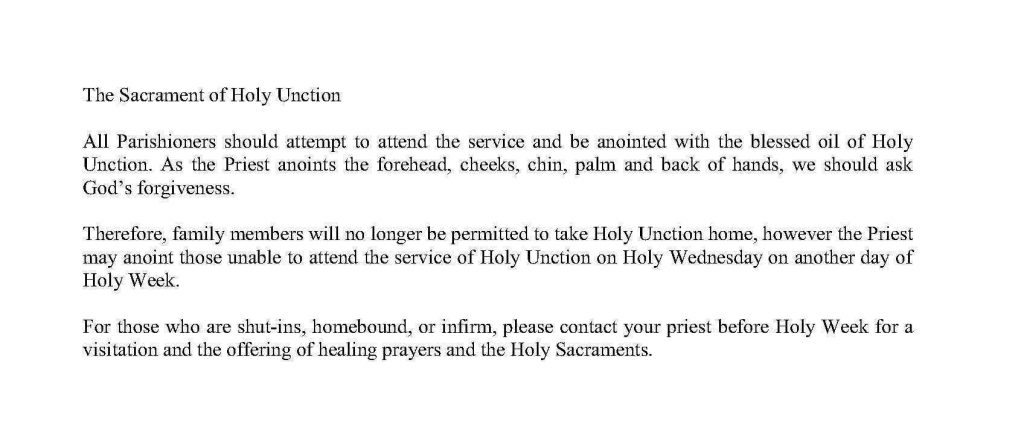Source: Annunciation Greek Orthodox Cathedral / Greek Orthodox Metropolis of Atlanta


As an Orthodox Christian living in the South, I remember with gratitude my grandparents and other forefathers, clergy and laity, who had the foresight and faith to adapt the teachings and the sacraments of their faith in this new land. They came here, and without the infrastructure of centralized religious institutions, built the churches and brought priests to attend to their spiritual needs. The early clergy and laity worked together, respecting each other’s talents, building our communities.
To administer the sacrament of Holy Unction on Holy Wednesday, laity, with the permission of their spiritual father, took the sacrament home and anointed those who could not attend the church service. This was done to meet needs, because our communities were underserved. There were not enough clergy to meet the needs of the faithful. The laity did this respecting the holiness of the sacrament. There were no deacons and deaconesses to reach out to minister to them. They ministered to each other under the direction of their priests. This was their duty to keep the faith alive and vibrant in this new land. This was done because the Church, as the body of Christ, is love and provides economia. It was a recognition that laity are the Royal Priesthood, and they are a vital part of the Church.
One hundred years later, the Church still lacks the deacons and deaconesses to minister the Sacrament to the people who cannot attend service. One priest in parish communities of hundreds cannot minister to the many elderly shut-ins and people who work, because their schedules conflict with the liturgical schedules. There still is no infrastructure to minister to the needs of the faithful. The Church is shorthanded. We still have no deacons and deaconesses trained to reach out and minister to the spiritual needs of the faithful.
What we have now are protocols. Protocols that decry what faithful clergy and laity did in the past to bring the faith and enable it to take root here. New protocols dishonor our history and traditions by declaring them improper. Protocols that state laity are no longer “qualified” to minister to their own family members or neighbors. There is a difference between holy oil and Holy Unction. You cannot put Unction in a plastic bag and just throw it away. My grandmother taught us this protocol 90 years ago. Her family never threw the Unction, any holy oil, palms, flowers distributed during different services and commemorations in the garbage. These were always burned. Every Holy Wednesday, along with Holy Unction, we should praise and glorify these forefathers who kept the faith and rooted it this country.
The Protocols need to be written with sensitivity and thanksgiving and not as revisionist history to minimize the role of the clergy and laity in the life of the Church. Protocols in this post-conciliar age of the Holy and Great Council need to BE conciliar and promote synergy between clergy and laity. Bishops need to make the work of the Council acceptable to the body of Christ. If this does not happen, the fragmentation of Orthodoxy in America will retard our development and make it impossible for us to retain our faithful.
George Matsoukas
